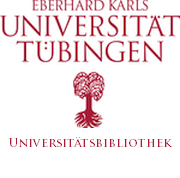Die soziale Marktwirtschaft – ein Zukunftsmodell?
DOI:
https://doi.org/10.18156/eug-1-2010-art-6Abstract
Der Text untersucht zunächst den Ordoliberalismus als theoretische Grundlage der
heute viel beschworenen »sozialen Marktwirtschaft« in seiner Entstehung und seiner
Konzeption und prüft im Anschluss Anspruch und Wirklichkeit des Modells. Dabei wird
herausgearbeitet, dass die »soziale Marktwirtschaft« in der Praxis eine spezifische
Mischung von flexibel angewandtem Neoliberalismus mit (ursprünglich nicht intendierten)
ausgebauten wohlfahrtsstaatlichen Elementen im Rahmen des traditionellen deutschen
korporativen Interessenausgleichs unter günstigen wirtschaftlichen und politischen Be-
dingungen nach 1945 darstellte. Als zukunftsweisendes Konzept für ein solidarisch orga-
nisiertes Gemeinwesen taugt das Modell, so wird abschließend argumentiert, allerdings
nicht.
The article first analyses the ordoliberal approach as the theoretical foundation of the
today much heralded model of a «social market economy» in its emergence and con-
ception. Consequently, the demands and the reality of the model are examined. The
text argues that the «social market economy» was in practice a specific mixture of
flexibly applied neoliberalism with (originally not intended) elements of a social wel-
fare state embedded in the traditional German corporate model of a reconcile-
ment of interests under favourable economic and political conditions after 1945.
As a forward-looking concept for a society organised by the principle of solidarity
this model, as the article concludes, is of little value.






